What is Ectopic Pregnancy?
Ectopic pregnancy occurs when a fertilized egg attaches outside the uterus, where it grows in a normal progression of pregnancy. Instead, it implants itself in the fallopian tubes, thus the term tubal or fallopian pregnancy. Although 90% of ectopic pregnancies take place in the tubes, the egg can also attach itself in the ovaries, cervix, or abdominal space.
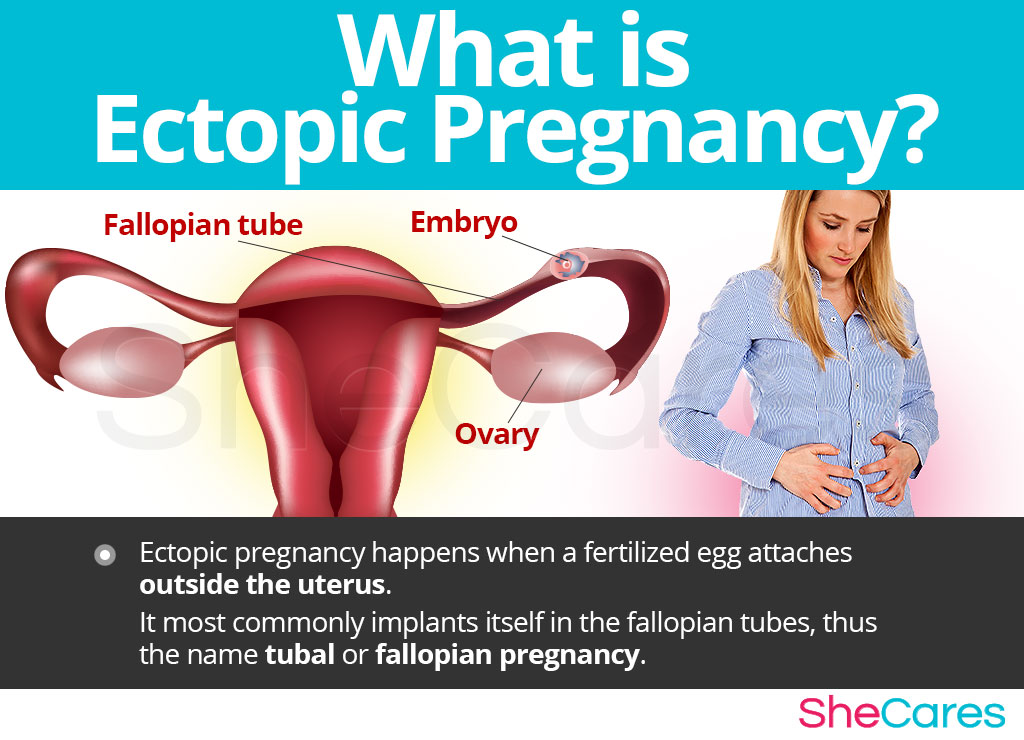
Causes of Ectopic Pregnancy
It is not always easy to determine the exact causes of ectopic pregnancy. However, a set of risk factors has been associated with an increased risk of the egg implanting outside the uterus:
History of ectopic pregnancy
Having pelvic inflammatory disease, salpingitis, or endometriosis
Fallopian tube abnormalities, such as scarring or defects
History of abdominal or pelvic surgery, such as tubal ligation
History of infertility
Pregnancy between the age of 35-44
Undergoing assisted reproductive technologies (ARTs), such as IVF
Getting pregnant while on contraceptives, such as IUD or progesterone-only pills
Smoking
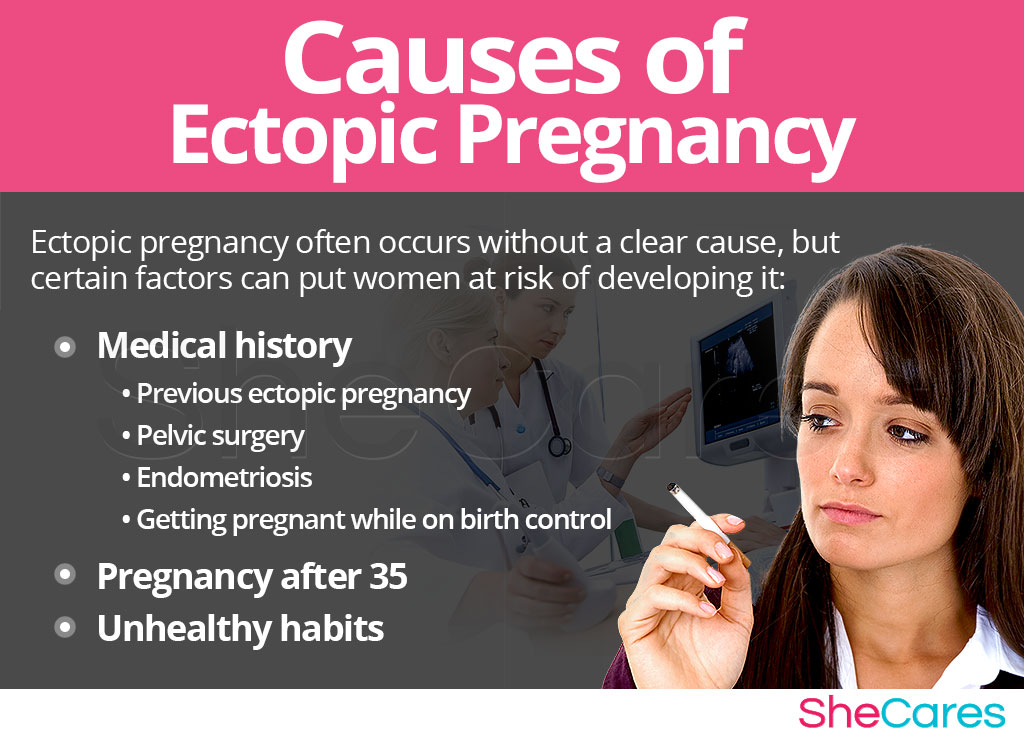
Signs and Symptoms of Ectopic Pregnancy
Early symptoms of ectopic pregnancy can resemble typical symptoms of normal pregnancy, such as absence of a period or morning sickness. Other associated symptoms might appear between the fourth and the 12th week of gestation. They include:
Symptoms of Ectopic Pregnancy
Abdominal pain and tenderness
Vaginal bleeding or spotting
Cramps on one side of the pelvis
Signs of Ectopic Pregnancy
Absence of embryo in the uterus 6 weeks after conception
Abnormal hCG levels in the blood
The symptoms of serious complications, such as ruptured fallopian tubes and internal bleeding, include sudden severe abdominal pain, dizziness, vomiting, diarrhea, and shoulder pain.
Diagnosis of Ectopic Pregnancy
Early diagnosis is key to preventing life-threatening complications, such as fallopian tube rupture and subsequent bleeding as well as ensuring that pregnancy will be possible in the future.
Ectopic pregnancy can be confirmed with the following examinations:
Pelvic exam to locate pain and tenderness.
Blood tests to detect the levels of hCG, a hormone present during pregnancy.
Ultrasound to check if there is an embryo in the uterus.
Diagnostic surgery to explore the extent of damage to the fallopian tubes.
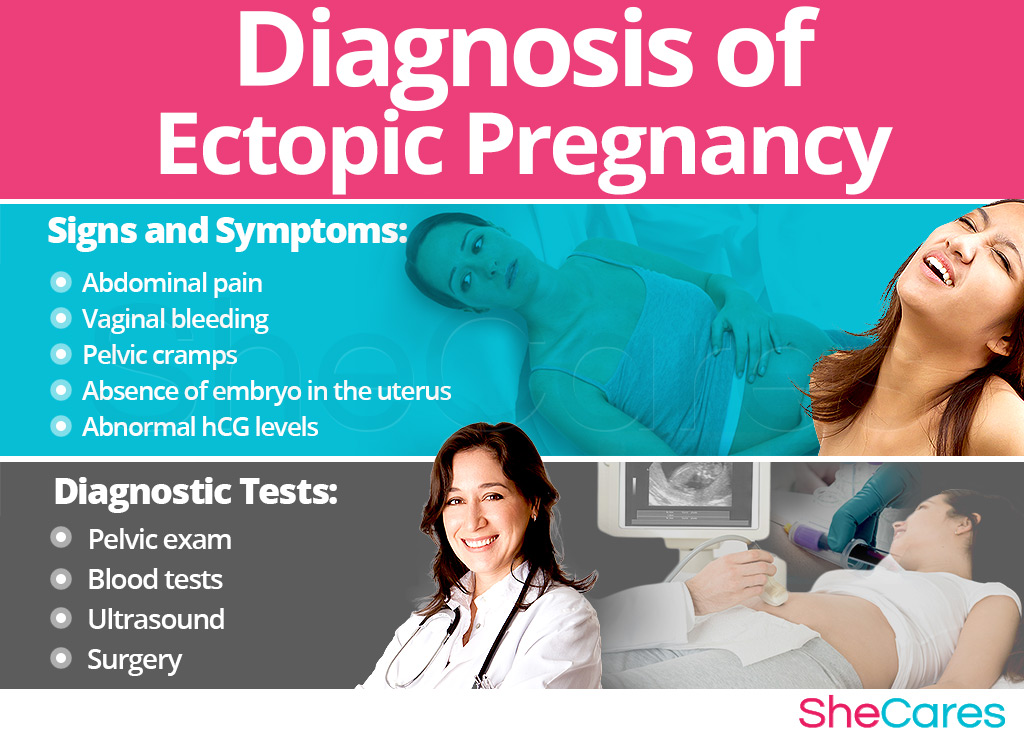
Effects of Ectopic Pregnancy
Effects on the Baby
Since only the uterus is able to support a developing embryo, ectopic pregnancy always ends in embryo's death.
Effects on the Mother
About 15% of ectopic pregnancies result in a ruptured fallopian tube since there is not enough space in the tubes for the embryo to grow. This rupture can cause internal bleeding, which can result in maternal death, if not promptly treated.
Women with a history of ectopic pregnancy are at a higher risk of developing it in future pregnancies. Some women have infertility problems because of tubal damage, but in certain cases, the tubes can be repaired surgically.
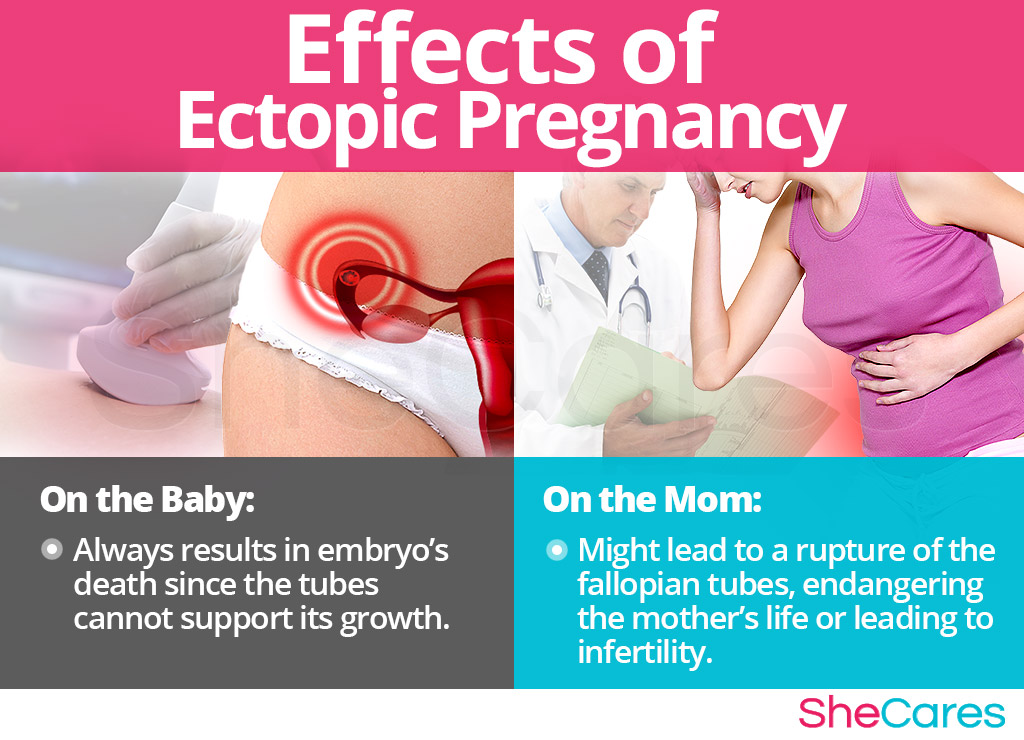
Risk Reduction for Ectopic Pregnancy
Prevention of ectopic pregnancy is not always possible, but its likelihood can be reduced to a certain degree by maintaining wholesome lifestyle habits and lowering the risk of damage to the fallopian tubes by:
Preventing or treating sexually transmitted diseases (STDs) before getting pregnant
Promptly treating abdominal or pelvic infections
Quitting smoking and other unhealthy habits, such as illicit drugs or excessive drinking
Resolving hormonal imbalances prior to getting pregnant with healthy diet and hormone-regulating supplements, such as Macafem
Treatment for Ectopic Pregnancy
The choice of treatment depends on the stage of pregnancy and the location of the embryo, and it might include:
Observation might be beneficial in very early pregnancy because the fertilized egg that has implanted outside the uterus dies and is naturally broken down by the body.
Medications are given when the embryo is still small, and the tubes have not ruptured. They prevent further growth of the embryo, which is then gradually reabsorbed by the body.
Surgery removes the egg and prevents damage to the fallopian tubes. If the rupture has already occurred, an emergency surgery is necessary to stop the bleeding and repair or remove the damaged fallopian tube.
Besides medical treatment, you might also need more emotional support in upcoming weeks or months. Do not hesitate to ask for help, whether it be through your friends and family, your physician, or a licensed mental health professional.
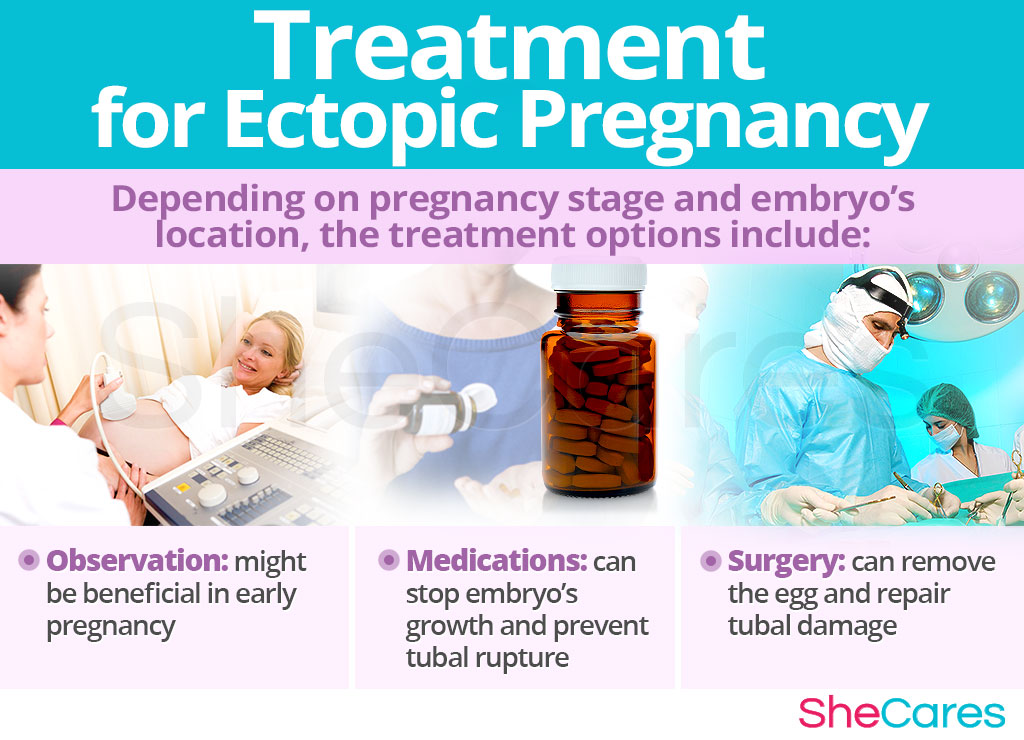
Key Takeaways
There is no doubt that ectopic pregnancy can be harsh on a woman, both physically and psychologically. Some take longer than others to come to terms with their loss and allow their bodies to fully recover. When the time is right, you and your partner might consider getting pregnant after an ectopic pregnancy. As studies have shown, a timely and properly treated tubal pregnancy does not prevent women from conceiving and having healthy and beautiful children.
Sources
- American Pregnancy. (2017). Ectopic Pregnancy. Retrieved January 31, 2018 from http://americanpregnancy.org/pregnancy-complications/ectopic-pregnancy/
- Better Health Channel. (2014). Ectopic Pregnancy. Retrieved January 31, 2018 from https://www.betterhealth.vic.gov.au/health/healthyliving/ectopic-pregnancy?viewAsPdf=true
- Department of Health. (n.d.). Ectopic Pregnancy. Retrieved January 31, 2018 from http://healthywa.wa.gov.au/Articles/A_E/Ectopic-pregnancy
- Health Direct. (2016). Ectopic Pregnancy. Retrieved January 31, 2018 from https://www.healthdirect.gov.au/ectopic-pregnancy
- Journal of Family Planning and Reproductive Health Care. (2011). Diagnosis and management of ectopic pregnancy. Retrieved January 31, 2018 from https://www.ncbi.nlm.nih.gov/pmc/articles/PMC3213855/
- Medline Plus. (2017). Ectopic Pregnancy. Retrieved January 31, 2018 from https://medlineplus.gov/ectopicpregnancy.html
- US. National Library of Medicine. (n.d.). Ectopic Pregnancy (Tubal Pregnancy). Retrieved January 31, 2018 from https://www.ncbi.nlm.nih.gov/pubmedhealth/PMHT0025659/
- Queensland Health. (2017). Ectopic Pregnancy. Retrieved January 31, 2018 from https://www.health.qld.gov.au/__data/assets/pdf_file/0028/651583/c-epl-ectopic.pdf
